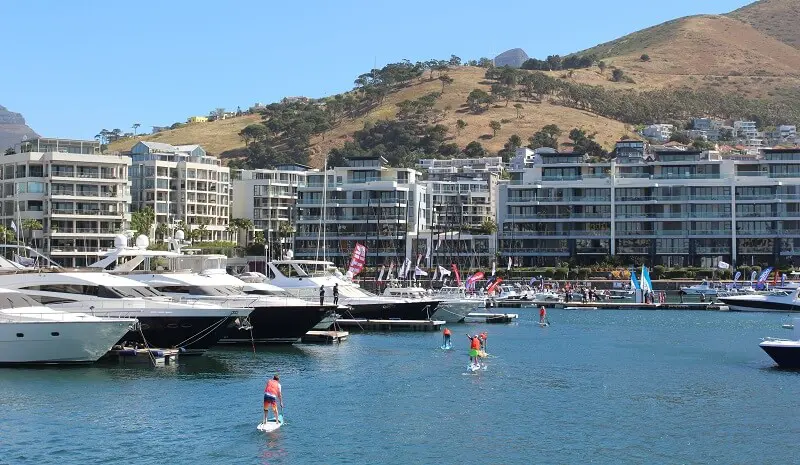Why tourism is important to Cape Town
Cape Town is South Africa’s most visited city. Located where the Atlantic Ocean meets the Indian Ocean, this beautiful city is popular amongst both domestic and international travellers.
Cape Town has a diverse offering from sightseeing to culture, outdoor and adventure activities. Its hospitality sector boasts world-class restaurants, bars and wine farms – all of which play a crucial role in the tourism sector.
Tourism is vital to Cape Town’s economy and the employment of its citizens. Its benefits are far-reaching and can be measured in more than just Rand value. Infrastructure, the environment and entrepreneurship are all advantaged by tourism in the Mother City.
Tourism drives economic development and employment
The tourism sector is the largest job creator in South Africa. According to Stats SA, 1 in 23 people are employed by tourism in the country. In the Western Cape, tourism drives economic development and job creation. Around 300,000 jobs in the province are created by tourism with more than 100,000 of those in Cape Town.
Tourism contributed R800 million to the City of Cape Town’s economy in December 2021 – a vast improvement from the same period in 2020, when the country was still reeling from local and international Covid-19 lockdowns. The total contribution of tourism to the city’s economy in 2021 was R5.8 billion.
On top of this, our relatively weak currency acts as a drawcard for international tourists, who spend generously when visiting the city.
Infrastructure improvements benefit tourists and locals
When increased spending is localised, it makes it possible for local governments and communities to improve on infrastructure such as roads, parks, hospitals, schools, and digital connectivity. Good infrastructure assists local areas to run smoothly – something for which Cape Town is well known.
The public transport system in Cape Town is another example of efficient infrastructure – with the city boasting a system is like no other in South Africa. This alone counts in Cape Town’s favour when tourists are considering which destinations to visit. A more connected city also makes it easier for the government and citizens to work efficiently – creating a ripple effect of economic benefits.
Heritage showcased and preserved
Cape Town is well-known for its diversity, heritage sites and role in South Africa’s history. Tourists are drawn in by the city’s impressive cultural scene and communities in turn are proud to share their traditions and history with both international and local tourists.
Showcasing these cultural traditions and heritage sites helps to preserve them for future generations in an ever-changing world.
A city for all seasons
Western Cape Tourism has initiated a campaign to counteract the effect that seasonability has on the tourism sector. This means that tourism in Cape Town will be able to go full throttle all year-round avoiding severe dips in the traditionally rainy winter season which creates income and employment struggles.
With the focus on year-round tourism, Cape Town will also be positively impacted by an increase in direct flights; the use of car hire, public transport, and hospitality; and the support of tourism sites around the city.
Sustainable tourism benefits environment and communities
Responsible and sustainable tourism are of high importance to the sector in Cape Town. Both encourage sustainable development in the form of environmental integrity, social justice and maximising local economic benefits. In this approach, individuals, organisations and businesses are asked to take responsibility for their actions.
Keeping tourism environmentally friendly is advantageous to everyone involved. Tour operators and businesses in the tourism industry are encouraged to be more environmentally aware, this in turn helps protect these areas.
Responsible and sustainable tourism makes sense from a business perspective as well. A growing number of tourists are becoming more aware of the increasing impact tourism is having on our world and they look for better experiences and products where the “tourism footprint” is less noticeable and where their own impact will be less damaging to nature.
Research based on UK holidaymakers has led us to believe that more than half of tourists are more likely to book a trip to a destination where they are guaranteed to see good working conditions and where the environment is protected.
Entrepreneurial Innovation
Innovation is crucial for the competitiveness and growth of tourism systems and its economy.
The tourism industry attracts substantial growth in a variety of industries, such as transport, accommodation, restaurants and even craft manufacturing. This growth encourages innovation in all industries affected by tourism. The city works with the private bodies to fund this growth to ensure the continued innovation and development in the sector.
Business owners and entrepreneurs alike are obliged to maintain a world class tourism experience. Generating new and attractive experiences, services and products for tourists to enjoy, creates work opportunities for a vast majority of Cape Town’s community. It also puts the city’s real estate, IT and business services sectors on the global map.
Share this blog
Published |
August 26, 2024




